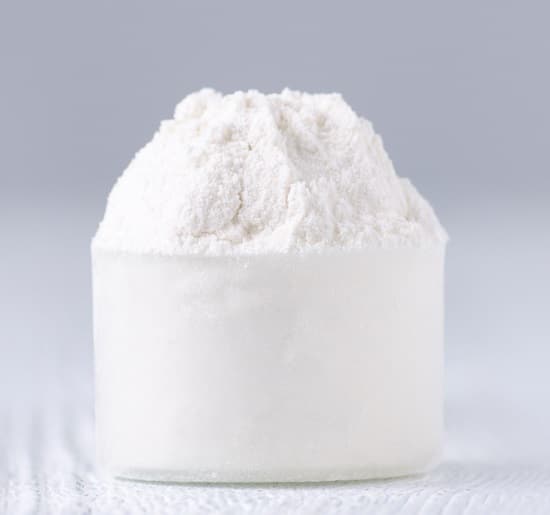If you are looking to increase your muscle mass, you may have heard about creatine. Creatine is a naturally occurring in the body that plays a vital role in energy production. It can also be an effective way to increase muscle size and strength and can help improve athletic performance. If you would like to learn more, this article will look at what creatine is, how it works, and the benefits of using it. It will also discuss some potential side effects of creatine supplementation.
Contents
What Is Creatine?

Creatine is a nitrogen-containing organic acid that is produced naturally in the body. It helps to maintain cell membranes and provides you with energy. Creatine can also be found in food, particularly red meat and fish. Technically, creatine is a supplement. However, it is not a drug because it naturally occurs in the body. In its natural form, creatine is synthesized in the liver, pancreas, and kidneys from three amino acids: glycine, arginine, and methionine. Once your body produces it, creatine is stored in the muscles in the form of phosphocreatine.
How Creatine Works

Creatine is a compound found naturally in the body and plays an essential role in muscle function. When consuming creatine through diet or supplements, it gets transported to the muscles, where it is stored as phosphocreatine. Phosphocreatine is then used to create ATP, which is the energy currency of the cells. The muscles use ATP for all kinds of activity, including contraction and relaxation.
Increasing the creatine levels in the muscles can increase the amount of ATP available for use, resulting in improved performance. Although creatine is most commonly associated with sports performance, it can also be beneficial for those who are suffering from muscle-wasting diseases. In these cases, creatine can help to slow down the progression of the disease and improve quality of life.
The Benefits Of Creatine
If you have ever looked into workout supplements, creatine is probably the first one you have come across. But why is that? Well, creatine offers many benefits that can be useful for a wide range of people, from athletes to the elderly. Some of these benefits include:
Improve Exercise Performance

As previously stated, creatine plays a vital role in energy production, and research has shown that it can help to improve exercise performance. When taken in supplement form, creatine helps increase the levels of phosphocreatine in the body, leading to greater ATP production. This increased ATP production can help to improve exercise performance by providing more muscle energy.
Furthermore, when taken before exercise, creatine has been shown to help improve power output. This means you can work out more intensely when taking creatine. So, if you are looking to boost your workout performance, creatine may be a good option for you.
Increase Muscle Mass

Creatine is also often used as a supplement to increase muscle mass, as it can increase lean body mass and improve performance during short-duration, high-intensity exercise. When your body receives a greater demand for energy, such as during exercise, it will turn to stored ATP for fuel. However, if ATP levels are low, your body will start to break down muscle tissue to create more ATP.
Creatine supplementation can help to increase ATP levels and reduce the breakdown of muscle tissue during exercise. This, in turn, can lead to increased muscle mass. In fact, clinical research has shown that creatine can help to increase muscle size and strength when taken in conjunction with resistance training.
Decrease Fatigue

During exercise, your body breaks down creatine to provide energy for muscles. This process results in the production of waste products, including lactic acid, which can build up and cause fatigue. Creatine can decrease the production of lactic acid, which can help reduce fatigue and improve exercise performance.
In addition, creatine can help to replenish energy stores in muscles, which can also help to reduce fatigue. For these reasons, athletes and bodybuilders use creatine to lower their fatigue levels and improve performance.
Enhance Brain Function

As you have learned, creatine can improve muscular strength and endurance, but recent research has also suggested that it can enhance brain function. For example, one study found that creatine supplementation improved working memory in healthy young adults. Another study found that creatine improved reading and intelligence scores in children with attention deficit hyperactivity disorder (ADHD).
Furthermore, creatine can also improve symptoms of depression and anxiety. Finally, because of its ability to cross the blood-brain barrier, creatine has the potential to be a valuable tool for treating cognitive disorders. However, more research is needed to confirm these beneficial effects.
The Potential Side Effects Of Creatine

Creatine is a safe and well-tolerated supplement, but there are potential side effects that you should be aware of. The most common side effects include:
Digestive Issues: One of the most common side effect people may experience from creatine is digestive issues such as nausea, diarrhea, and stomach cramps. To avoid these effects, make sure to drink plenty of fluids and start with a lower dose.
Muscle Cramping: Muscle cramping is another potential side effect of creatine supplementation. If you are experiencing muscle cramps, make sure to stay hydrated and increase your sodium intake.
Weight Gain: Some people also may experience weight gain when taking creatine. When taken in large doses, creatine can cause water retention and lead to weight gain on the scale. However, this weight gain is usually temporary and does not reflect an increase in body fat.
Dehydration: Dehydration can also be a concern when taking creatine, as it can cause your body to hold on to water. Make sure to drink plenty of fluids when taking creatine and avoid exercising in hot or humid conditions.
Kidney Damage: There is also some concern that creatine supplementation may cause kidney damage, but there is limited evidence to support this claim. However, if you have a history of kidney problems, it’s best to avoid taking creatine.
That’s Everything You Need To Know About Creatine!
Creatine is a safe and effective supplement that can offer many benefits. Whether you are using it to improve athletic performance or just enhance brain function, creatine can be a valuable addition to your supplement regimen. Just be sure to stay hydrated and start with a lower dose to avoid any potential side effects. Speaking with your doctor before starting any new supplement is also recommended, especially if you have a medical condition. With that said, creatine can be a great way to improve your health and fitness.


